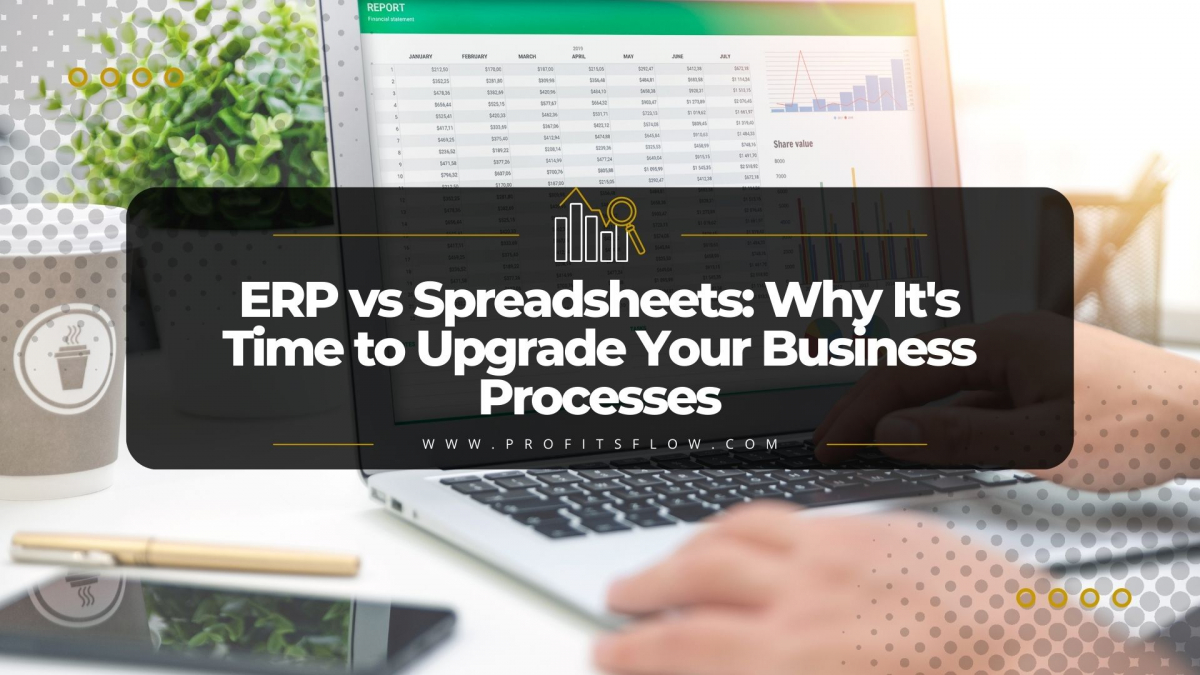Empower Your Business: Upgrading from Spreadsheets to a fully Integrated ERP Solution
Today, companies are constantly seeking ways to optimise their operations, improve efficiency, and drive growth. One critical area that can significantly impact business performance is the management of data and information. Traditionally, spreadsheets have been the go-to tool for organising and analysing data. However, as businesses grow and become more complex, spreadsheets often prove to be inadequate. Enter ERP (Enterprise Resource Planning) systems – powerful software solutions designed to streamline and centralize business processes. In this blog post, we will explore the topic of ERP vs spreadsheets and highlight the limitations of spreadsheets and highlight why it’s time for businesses to upgrade to ERP systems.
One of the primary challenges of relying on spreadsheets is data fragmentation. As data is stored in multiple files and shared among different departments, it becomes challenging to maintain accurate and up-to-date information. Version control issues arise when multiple individuals make changes to different copies of the same spreadsheet, leading to data inconsistencies and errors. ERP systems offer a centralised database, ensuring data integrity and providing real-time access to information across the organisation.
Spreadsheets are suitable for managing small-scale data, but they quickly become unwieldy as a business expands. As the volume of data and complexity of operations increase, maintaining numerous interconnected spreadsheets becomes time-consuming and error prone. ERP systems are designed to scale alongside growing businesses, accommodating larger datasets, and handling complex workflows without sacrificing accuracy or performance. More issues arise due to lack of visibility and collaboration. Collaboration is crucial for efficient teamwork, but spreadsheets often hinder collaboration due to their file-based nature. Sharing spreadsheets via email or network drives can result in conflicting changes and difficulty tracking edits. ERP systems, on the other hand, facilitate collaboration by allowing multiple users to access and update data simultaneously. This promotes cross-functional collaboration, improves communication, and provides real-time visibility into business processes.
Spreadsheets heavily rely on manual data entry and formula-based calculations, leaving room for human errors. As businesses grow, the sheer volume of data and complexity of calculations increase the likelihood of errors, which can have detrimental effects on decision-making. ERP systems automate processes, reducing manual data entry and minimising the risk of errors. By integrating data from various departments and automating calculations, ERP systems improve accuracy and ensure data consistency.
While spreadsheets offer basic reporting capabilities, they often lack the advanced analytical tools required for in-depth business analysis. Analysing large datasets and generating meaningful insights becomes cumbersome in spreadsheets, hindering decision-making. ERP systems provide robust reporting and analysis features, allowing businesses to generate customized reports, perform complex data analysis, and gain valuable insights to drive strategic decision-making.
While spreadsheets have served businesses well for many years, their limitations become evident as organisations grow and evolve. To overcome the challenges of data fragmentation, limited scalability, collaboration issues, manual processes, and reporting limitations, businesses need to consider upgrading to ERP systems. ERP solutions offer comprehensive functionality, centralise data, automate processes, and provide real-time visibility into operations. By embracing ERP, businesses can unlock greater efficiency, optimise workflows, and position themselves for sustainable growth in today’s competitive marketplace. ERP vs spreadsheets
For more information on all things ERP be sure to follow us on social media. You can find us on LinkedIn, Twitter and Facebook. Similarly, you can email us at info@profitsflow.com or call us on 01-244-9580. ERP vs spreadsheets
